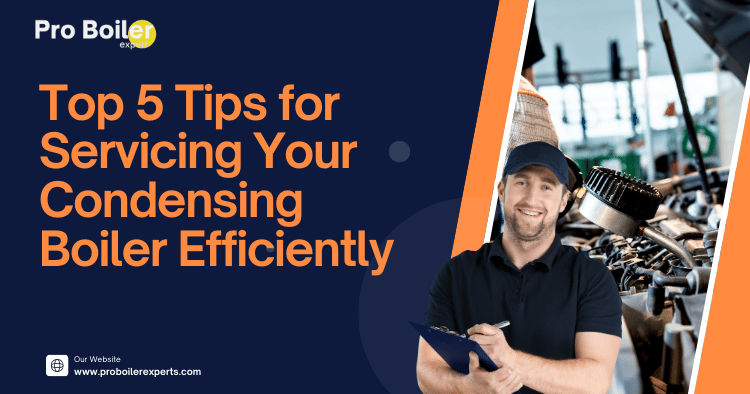Table of Contents
- Understanding Your Condensing Boiler
- Regular Maintenance: The Key to Longevity
- Keep the Condensate Drain Clear
- Check and Adjust the Pressure
- Schedule Professional Servicing
Understanding Your Condensing Boiler
Condensing boilers are designed to be highly efficient, converting a greater percentage of fuel into usable heat. Unlike traditional boilers, they utilize the heat from flue gases that would otherwise be wasted. This makes them an eco-friendly choice, as they can achieve efficiencies of over 90%.
“Investing in a condensing boiler is not just good for your wallet; it’s good for the planet.”
Why is Servicing Important?
Regular servicing is crucial for maintaining efficiency and safety. Neglect can lead to decreased performance, higher energy bills, and potential safety hazards. Familiarizing yourself with how your boiler operates and understanding its components will empower you to identify issues early.
For more detailed insights into how condensing boilers work, check out Pro Boiler Experts.
Regular Maintenance: The Key to Longevity
Routine maintenance is your first line of defense in ensuring your condensing boiler runs smoothly. Here are some essential tasks to incorporate into your maintenance routine:
| Maintenance Task | Frequency | Benefits |
|---|---|---|
| Check and replace filters | Every 3-6 months | Improves air quality and efficiency |
| Inspect and clean heat exchanger | Annually | Enhances heat transfer efficiency |
| Test safety valves | Annually | Ensures safe operation |
| Clean the burner assembly | Annually | Prevents soot build-up |
“Think of maintenance as a health check for your boiler—prevention is always better than cure!”
FAQs about Maintenance
Q: How often should I service my condensing boiler?
A: It’s advisable to have a professional service your boiler at least once a year to ensure optimal performance.
Q: Can I perform maintenance myself?
A: While some basic checks can be done by homeowners, it’s best to leave complex tasks to trained professionals.
Keep the Condensate Drain Clear
The condensate drain is a vital part of your condensing boiler, as it removes the acidic water produced during the condensation process. A blocked drain can lead to severe issues, including leaks and damage to the boiler.
“A clear drain is a happy drain! Regular checks can save you from costly repairs.”
Tips for Keeping the Drain Clear
- Inspect Regularly: Check the condensate pipe and drain regularly for blockages or ice during colder months.
- Insulate the Pipe: Use pipe insulation to prevent freezing in cold weather.
- Use a Wet-Dry Vacuum: If you notice a blockage, a wet-dry vacuum can help clear it out.
Visual Aid: Common Issues with Condensate Drains
| Issue | Symptoms | Solution |
|---|---|---|
| Blockage | Boiler shuts down, error codes | Clear the pipe using a vacuum or call a professional |
| Freezing | No flow, boiler error | Insulate the pipe to prevent freezing |
For more information on condensate drains, visit The Heating Hub.
Check and Adjust the Pressure
Maintaining the right pressure in your condensing boiler is essential for optimal performance. The ideal pressure is typically between 1.0 and 2.0 bar. Here’s how to check and adjust it:
“Pressure management is like tuning a musical instrument—get it right, and everything runs smoothly.”
- Locate the Pressure Gauge: This is usually found on the front panel of your boiler.
- Check the Reading: If the pressure is below 1.0 bar, you may need to add water. If it’s above 2.5 bar, you should release some pressure.
- How to Adjust:
- To Increase Pressure: Locate the filling loop, open the valve, and allow water to enter until the desired pressure is reached.
- To Decrease Pressure: Open a radiator bleed valve until the pressure decreases to the right level.
FAQs about Boiler Pressure
Q: What happens if the pressure is too low?
A: Low pressure can cause your boiler to shut down, leading to a lack of hot water and heating.
Q: Can high pressure damage my boiler?
A: Yes, excessively high pressure can damage components and lead to leaks or even explosions.
Schedule Professional Servicing
While regular maintenance can be performed by homeowners, scheduling professional servicing is crucial for comprehensive checks and repairs. Professionals can identify issues that may not be visible to the untrained eye.
“Think of professionals as your boiler’s personal trainers—ensuring it stays in peak condition!”
What to Expect from Professional Servicing
- Thorough Inspection: A detailed examination of all components, including the burner, heat exchanger, and safety features.
- Cleaning: A professional will clean the internal parts of the boiler, improving efficiency and prolonging its lifespan.
- Testing: All safety features will be tested to ensure your boiler operates safely.
FAQs about Professional Servicing
Q: How much does professional servicing cost?
A: Costs can vary, but expect to pay between $100 and $200 for a comprehensive service.
Q: How can I find a reliable technician?
A: Look for certified professionals through reputable organizations like Pro Boiler Experts.
By following these tips and scheduling regular maintenance, you can ensure your condensing boiler operates efficiently and safely for years to come. For more information on different boiler types and their benefits, consider checking Top 5 Benefits of Choosing Condensing Boilers. Happy heating!





